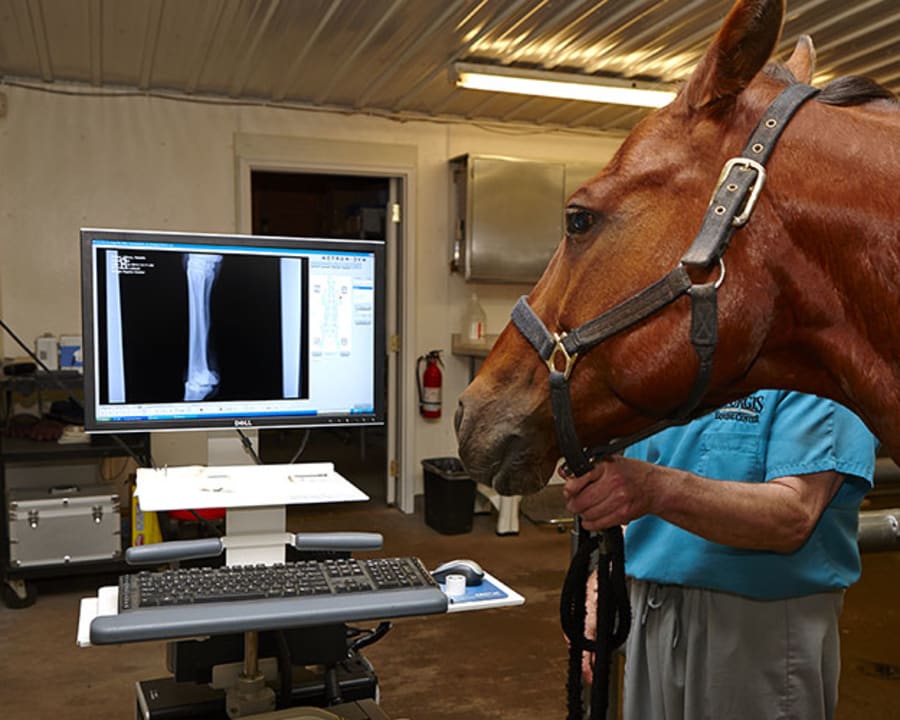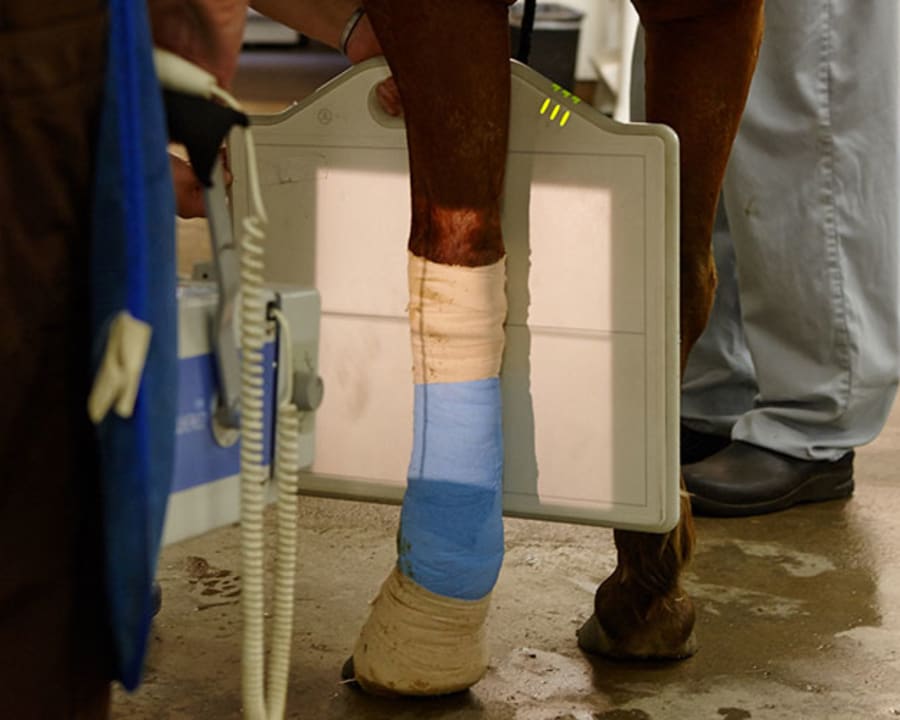Equine Diagnostics Lab
We use electromagnetic radiation and other technologies for diagnostic imaging. This allows us to produce highly detailed images of your pet's internal structures.
Our equine diagnostic lab has advanced tools to help diagnose your pet's medical issues. We offer a variety of services, from digital radiology to ultrasound and cold lasers.
With our diagnostic imaging capabilities, we can efficiently produce diagnostic information about your pet's condition and provide immediate treatment options.


Our Diagnostic Services
With our in-house veterinary diagnostics lab, we are pleased to offer advanced diagnostic testing to allow our vets to provide a diagnosis of your pet's medical issues.
- Radiography (Digital X-rays)
Radiographs are often the first diagnostics imaging modality used to evaluate lameness. Digital Radiography allows for potentially greater detail than conventional radiography by having each image be processed by the computer.
Digital radiography services for equine patients both in our hospital and on the farm allow us to diagnose issues such as fractures, laminitis, wounds, foreign objects, and penetration of joints. They can also be used for pre-purchase exams and lameness evaluations.
- Ultrasound
Ultrasound uses sound waves to offer a non-invasive, painless, and radiation-free method of imaging your horse's internal organs, tendons, and ligaments. Compared to radiographs, ultrasound highlights soft tissue changes such as tears in a tendon or ligament. This can be used to diagnose an injury, but also in advanced management of an injury and to guide you and your horse on the track to recovery.
Ultrasound can also be used to guide technical joint injections such as cervical spine (neck), lumbar spine (low back), and the sacroiliac joint (SI). Ultrasound is also useful in diagnosing masses or lumps. This can be used not only externally but internally as well.
- Gastroscopy
Gastroscopy describes a complete examination of the two lining tissues of the horse's stomach using a flexible video endoscope. It is performed under light sedation and images are captured at specific points around the stomach and are graded and defined by type.
- Cytology
Cytology, which is the study of cells, involves the collection and examination of cells and fluid from organs, tissues, and body cavities. Cells are naturally shed from the surfaces of mucous membranes, organs, and skin lesions, and they can be collected for examination.
Veterinarians can collect fluid and cells from difficult-to-reach tissues like the respiratory tract, the guttural pouch, and the reproductive tract.
Laboratory examination helps characterize the cell types and evaluate the fluid present to determine health or disease status.
- Bloodwork
At our vet lab in Sturgis, we can run several common and specialized blood tests to determine the health of your horse and to diagnose illness.
Some of the most common veterinary blood tests we do are CBC (complete blood count), white blood count, hemoglobin and MCHC (mean corpuscular hemoglobin concentration), hematocrit, platelets, eosinophils, and blood serum profiles.
- Urinalysis
Urinalysis is a key diagnostic test that provides your vet with essential insights into the physical and chemical properties of your pet's urine.
Urinalysis is primarily used to assess the health of your animal's kidneys and urinary tract system, but it can also help detect issues in other organ systems and is important for diagnosing metabolic diseases like diabetes.
This is a valuable diagnostic test for both healthy and sick animals and should be included in any comprehensive evaluation of your pet's overall health.
- Fecal Floats
A fecal exam is the microscopic examination of your horse's feces, which can be done at our in-house vet lab in Sturgis.
A fecal egg count measures the number of strongyle eggs your horse is passing in each gram of his manure. When you send a sample to your veterinarian or independent laboratory, you get back a number like 50 EPG (eggs per gram) or 500 EPG.
Parasites can make horses uncomfortable, and irritable, and lead to more serious conditions.
Annual fecals protect your horses from problems like colic, weight loss, and diarrhea and protect the pasture from eggs being passed on.

